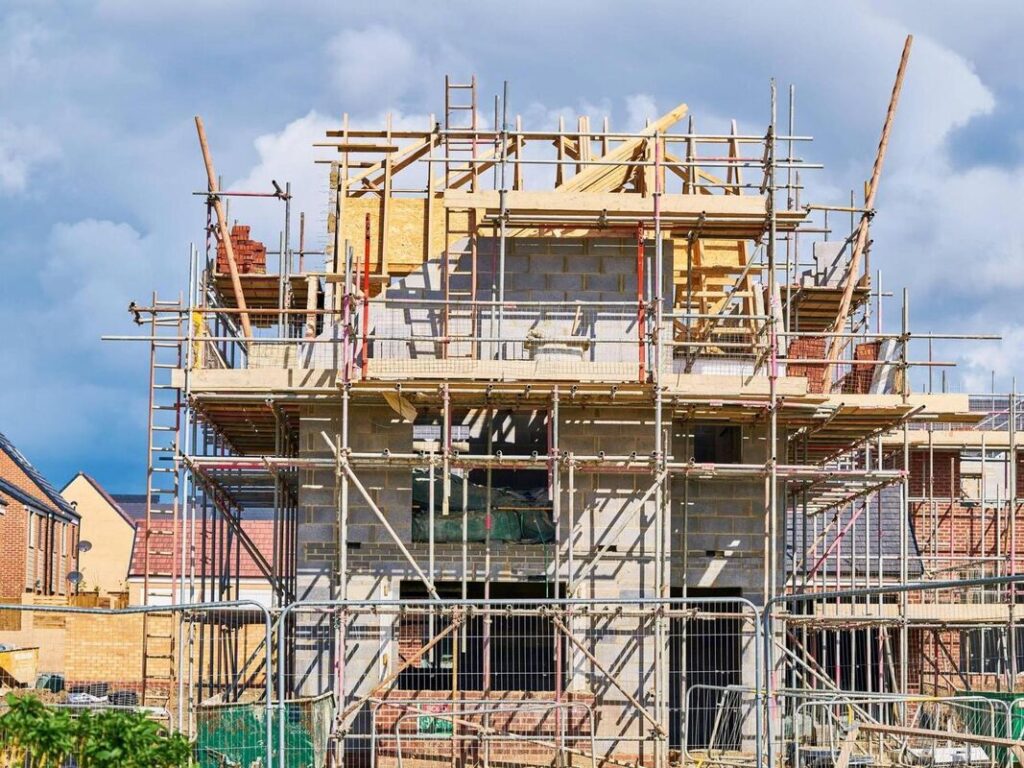Skyrocketing interest rates around the globe have culminated in a worldwide housing crisis as economies deal with the problem of burgeoning unaffordable housing.
Germany, Europe’s largest economy, has been dealing with slower construction amid stagnant demand, causing the property market to shrink rapidly.
“The homebuilding or construction sector is the first victim of higher interest rates,” Carsten Brzeski, global head of macro research and chief economist for Germany at ING Group, told CNBC. Brzeski pointed to increased costs of material and energy as well as overall financing costs as the key reasons for the collapse.
Don’t Miss:
- Investing in real estate just got a whole lot simpler. This Jeff Bezos-backed startup will allow you to become a landlord in just 10 minutes, and you only need $100.
- Warren Buffett once said, “If you don’t find a way to make money while you sleep, you will work until you die.” Here are three high-yield investments to add significant income to your portfolio.
Plummeting Housing Demand
Like the U.S., Germany is grappling with declining homebuilding sentiment as construction costs rapidly rise because of sky-high interest rates and inflationary pressures.
Despite the headwinds, housing demand has remained strong in the U.S. That is not the case in Germany, which is struggling with declining home prices because of stagnant demand.
German residential property prices fell by 9.9% year over year in the second quarter, marking the steepest decline since 2000. Analysts predict a greater-than-anticipated decline in German home prices this year and next, attributing it to diminished demand resulting from elevated interest rates, according to a recent Reuters poll.
“Higher interest rates forced about half of all potential buyers out of the housing market … and therefore will lead to price reductions in the German housing market in this and the next few years,” BayernLB senior real estate analyst Sebastian Schnejdar said.
Construction Sector In Shambles
Shrinking demand has wreaked havoc on the German construction sector as companies cancel ongoing residential construction projects and slash future projects amid the bleak sector outlook.
According to a recent report by the Ifo Institute for Economic Research, a record high of over 22% of companies canceled residential construction projects in Germany. Simultaneously, 48.7% indicated a shortage of orders, compared to 46.6% in September and 18.7% a year ago.
“Things continue to go from bad to worse in Germany’s construction sector. The housing sector is the epicenter of the downturn, nosediving at a breakneck speed,” said Cyrus de la Rubia, chief economist at Hamburg Commercial Bank.
However, as construction accounts for nearly 7% of Germany’s gross domestic product (GDP), the anticipated decline could cause Europe’s largest economy to contract this year.
While the European Central Bank is expected to hold the benchmark interest rate at the current level, housing market headwinds are expected to persist well into 2024, as Brzeski predicts order books to remain empty as “demand won’t pick up quickly enough.”
The most recent Construction Purchasing Managers’ Index (PMI) survey for Germany, conducted by the Hamburg Commercial Bank, registered 38.3 in October, marking the lowest point in 3½ years.
Only 175,500 new housing permits were issued between January and August this year, reflecting a 28.3% decrease year over year, according to the German Federal Statistical Office.
The government is poised to fall short of its target of 400,000 new homes for fiscal 2023, as Brzeski anticipates less than 250,000 will be constructed this year.
Government Takes Action
Germany witnessed a technical recession in the first quarter of 2023. As the global economy slows and interest rates hover near record levels, the European Commission forecasts Germany’s total economic activity to contract in fiscal 2023. The property sector downturn is a major driver behind Germany’s slowing economy, as it contributes to nearly 7% of the total GDP.
To mitigate the ongoing property crisis and boost economic activity, Germany announced a 14-point plan and an investment of €45 billion ($49 billion) to promote house building nationwide.
The German government has also taken steps to expedite planning and permit processes for construction projects as well as provide financial relief for companies facing high electricity costs.
Industry experts predict the challenges will persist despite the government’s sizable incentive package because it does not address rising financing costs and low demand.
“Currently, many firms are relying on the backlog of orders. But the gap between current construction production and the incoming orders is widening. This means a drop in 2024 becomes more likely,” said Klaus Wohlrabe, head of surveys at Ifo.
Source : Yahoo


